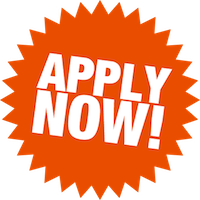Healthcare in Korea
| Go to: | » Making Appointments | » Pharmacists | » Medical Insurance | » Medical Payments | » Calling an Ambulance |
In Korea, medical treatment is available at hospitals, public health centers, and private clinics. At most major hospitals you can be assured that there will be staff on hand that can speak English. Many of the doctors in Korea have spent time abroad and read medical journals in English as well.
If you are interested in alternative medicines and Chinese culture, there are also a number of traditional Chinese medical clinics in Korea that use herbal remedies and other traditional methods of treatment.

Making Appointments
Generally speaking you do not need an appointment. Basically, you walk into the hospital and ask for help. Unless you have a clear medical emergency you will first be directed to the payment counter where you must first pay before you see the doctor. This is just the basic fee. If you have any kind of Korean medical insurance, make sure you show it to the staff before they bill you.
Most of the hospitals are open from Monday to Saturday, but not Sundays and holidays (emergency room only).
Pharmacists
In case of light illnesses, visit the nearest pharmacist and tell her/him your symptoms. Not all pharmacists open on Sundays and holidays, but some are. Ingredients and directions are written on the envelope of the medicine.
Medical Insurance
There are two kinds of medical insurance, foreigners can have both kinds:
Company Medical Insurance
Employees of a company, the government, or those authorized by the ministry of Health & Welfare Affairs, can have beneficiaries by the government plan. Health insurance is available for foreigners by enrollment. Students, embassy employees and nuns who do not pay insurance charges, will not be covered.
Community Medical Insurance
Foreigners in Korea with F-2 status can be covered by regional insurance. To register, prepare the documents required and submit them, along with an application for medical insurance, to the Medical Insurance Association of Busan. Insurance premiums must be paid every 3 months and are determined by the number of family members to be covered, income and property.
Required documents
- Passport
- Residential card
- Certificate of embarkation and disembarkation (Available at any Immigration office, airport or KCAT)
- Copy of citizenship
Medical Payments
To make the insurance plan valid, pre-pay the fee every three months. However, even if one receives treatment by the plan, one needs to prepay the fee in advance. Otherwise, one cannot be protected by the plan for one year afterwards.
Calling an Ambulance
To dial Emergency from public phones, push the emergency button or put insert a coin. Dial 119 after the signal and the emergency dispatch center will answer. Then, tell the dispatcher the following information.
State your name, address or location in detail. Speak clearly and precisely. If possible, provide additional details of age, sex and any landmarks near your present location and what the injury involves.





